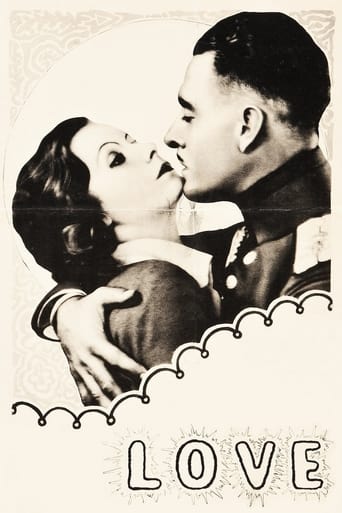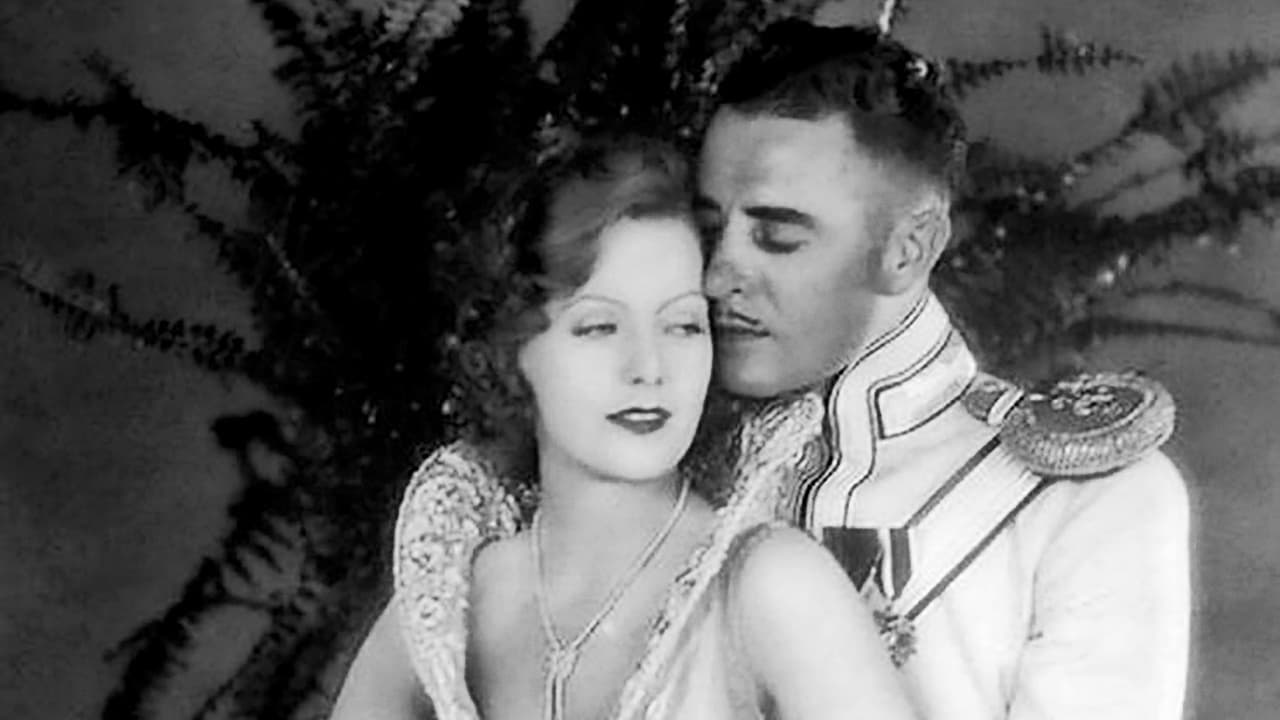bkoganbing
Back in the day this silent version of Anna Karenina was all the rage because in that year that talkies made their debut, the film was part of the famous Greta Garbo/John Gilbert group that was passionately daring for its time. That scene where Gilbert after helping a lady in distress in the snowy Russian winter, when they get to shelter and she takes off the hoodie on her parka and Gilbert does a triple take at Garbo's beauty is still one of the best love at first sight scenes in the history of cinema.The passionate sparks from Garbo and Gilbert still thrill many. But ninety years after Tolstoy's novel got the full MGM tratment we can get real critical over the happy ending the film got. There was a more realistic ending apparently filmed for foreign markets. But I can only critique what I see.Still for me the best version of Anna Karenina was the one Vivien Leigh did in 1948 which was closest to Tolstoy's work. The sound remake that Garbo did with Fredric March as Count Vronsky is better than this one. The ending there is tragic, but there is a postscript softening of Vronsky's character. Fans of Greta Garbo and John Gilbert should still like this. But Tolstoy purists will be disappointed.
evening1
Anyone who thinks silent movies can't convey the realistic passion of love should see this pairing of Garbo and John Gilbert.Their chemistry is palpable and the loss Garbo suffers in terms of her son is believable without plunging into bathos.I was fortunate to see a version of this film on TCM that provided both endings -- the puerile have-your-cake-and-eat-it-too version for American audiences and the bleak, moralistic one that that was distributed for more adult viewers internationally.It's shocking that Americans were believed to require such pabulum. But when you think about it we remain a childish, head-in-the-sand society in many ways. It's just rare to have the us-vs.-them contrast shoved in one's face like this...The performances in this film are stellar. I'm ashamed to say -- and American enough to admit -- that I haven't read "Anna Karenina." Now at least I wish to.I love when movies help to bring my own life into clearer focus. And this one has. Vronsky: "To see you and not touch you...to love you and not have you...No, we'll never see each other again..." This film brings out a terrible truth in life, as acted out by the cold and passionless Karenin. "You two will destroy each other." He needn't have dirtied his hands or mussed his hair and he knew it. Powerful!
mukava991
LOVE is the perfect title for this hacked-down adaptation of Tolstoy's mammoth novel ANNA KARENINA. It was made to cash in on the popularity of Greta Garbo and John Gilbert, fresh from their box office triumph in FLESH AND THE DEVIL earlier the same year. Like virtually all of Garbo's silent films, much of the screen time is devoted to watching the great tormented Swede abandon herself to love, suffer for love, contemplate love, lose love, die. It is interesting to compare this version of the novel with the one made eight years later in which Garbo played opposite Fredric March who, while less dashing and handsome than Gilbert, did give a fine performance as the impetuous and essentially cruel Count Vronsky. In the latter film Garbo is less attractive due to the clash between the curly coiffure she is given and the strong planes and features of her face. She even looks like a male in drag in some scenes. But in LOVE she is beautiful and feminine throughout. The clinging 1920's-style dresses help, even if they detract from the authenticity of a story that is supposed to be set in 1870's Russia. Gilbert was one of the best actors of his era and the talent shows here. He is also a magnetic screen presence and one can understand why audiences in 1927 flocked to see these two together. The scenes of mother-son tenderness between Garbo and Philippe deLacy do indeed seem incestuous as others have pointed out, but so do the scenes between Garbo and Freddie Bartholomew in the 1935 version. I think it was just Garbo's way of expressing love on screen; you see her perform the same kind of nuzzling in other movies, whether the attentions are being given to a man, a woman or a child. I disliked both endings, but at least Garbo was ravishing in the happy one. And remember, Garbo was just shy of 22 when she filmed this, yet she is believable as an older woman. She had a face that could express any age. This movie cries out for a re-scoring. The print shown on TCM is marred by what sounds like muffled applause from time to time.
SilntFan
I've always been an ardent fan of Flesh and the Devil, but then I saw Love. This movie is absolutely beautiful, there's no other word to describe it. Whereas Flesh and the Devil seemed to be crass commercialism, Love is more subtle in many ways.I gave this movie a 9 due to two rather melodramatic moments where Garbo wasn't exactly restraining herself. However, there are enough scenes where she conveys Anna's inner turmoil by the most fleeting and eloquent of expressions. The lighting in her scenes are breathtakingly beautiful, and I can only imagine how long it took to set it up just right! In so many of her scenes she is heartbreaking, especially when, exiled from her home, she sees a schoolboy and momentarily believes that he is her son and tries to embrace him. When he struggles and runs away, she does a wonderful job portraying Anna's rather unstable mind, which she does to great effect throughout the picture. In the beginning, however, when she first meets Vronsky, she seems to be in control of herself, and there is a wonderfully imperious stare in close-up, followed quickly by a close-up of Gilbert. As I watched her, I was astonished when I remembered that she was only 22 in this film.Which brings us to Gilbert. For those who think of him as simply Valentino's successor as the Great Lover, being no more than a slab of meat for the delight of female audiences, need to watch this film. He is simply perfect, the model of natural acting -- there is not a hint of melodrama or the "ham" about him. He is completely in love with Anna, but there are none of the breast-heaving love scenes that are throughout Flesh and the Devil. He is jealous of anybody coming between him and Anna, but there are no widened eyes and arm waving. Simply jamming his hands in his pockets and an angry stare into the distance.My only complaint with this film was the presentation on TCM. They used a live performance, and we get the "audience reaction" throughout the film. Which is fine at points, but for the most part, the reaction is totally wrong. Too many times there was laughter at what was, in 1927, a very dramatic moment. When Jack is too busy looking at Garbo to blow out the match and ends up burning his finger, that's funny. But when Anna says the profound line to the jealous Vronsky "There is no more or less in love -- I love you both infinitely" (referring to her son), the laughter was totally inappropriate. I hope this is not the avenue of any future TCM silent movies. Even though modern audiences are supposedly more "sophisticated," they aren't sophisticated enough to appreciate what "worked" 70-75 years ago. Even though these movies are old, there are still images and "lines" that are as ageless as Garbo's face.



 AD
AD


